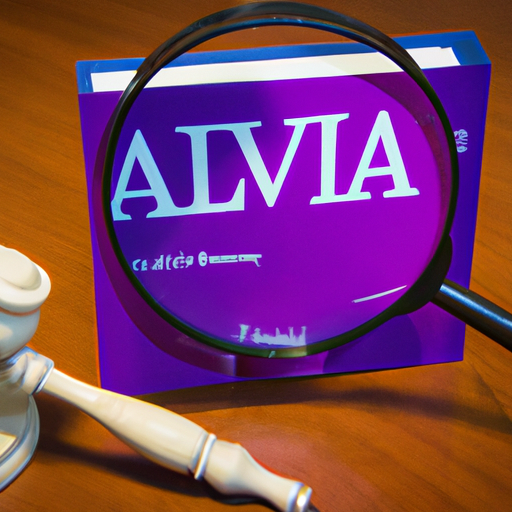In today’s rapidly evolving digital landscape, it is crucial for businesses to stay ahead of the game when it comes to advertising compliance. With ever-changing laws and regulations, companies need to ensure that their advertising campaigns are not only effective but also within legal boundaries. This article aims to provide you with insightful tips on how to navigate the intricate world of advertising compliance, equipping you with the knowledge needed to avoid potential legal pitfalls. From understanding the basics of disclosure requirements to staying up to date with the latest advertising guidelines, this article will empower you to make informed decisions and protect your business’s reputation. Whether you are a seasoned marketer or a budding entrepreneur, these compliance tips will prove to be invaluable in your advertising endeavors. So read on to discover the key principles of advertising compliance and gain a competitive edge in today’s competitive marketplace.
Advertising Compliance Tips
In today’s highly regulated business environment, it is crucial for companies to ensure that their advertising practices are in compliance with the applicable laws and regulations. Failure to do so can result in costly legal consequences, damage to reputation, and loss of customer trust. This article will provide you with comprehensive tips on how to maintain advertising compliance and avoid potential legal pitfalls.

1. Understand the Applicable Laws and Regulations
To begin with, it is essential to have a thorough understanding of the laws and regulations that govern advertising at the federal, state, and local levels. This includes familiarizing yourself with the Federal Trade Commission Act, which prohibits unfair or deceptive advertising practices. Additionally, different industries may have their own specific advertising guidelines that you must adhere to. By being well-informed about these laws and regulations, you can ensure that your advertising efforts are compliant from the outset.
2. Clearly Define Your Target Audience
When developing your advertising campaigns, it is vital to clearly define your target audience. Conducting market research can help you determine the demographics and preferences of your target customers. By tailoring your advertising messages specifically to this audience, you can enhance the effectiveness of your campaigns and avoid misleading or confusing targeting practices that may run afoul of the law.
3. Ensure Truthfulness and Accuracy in Advertising Claims
One of the fundamental principles of advertising compliance is the obligation to ensure truthfulness and accuracy in your advertising claims. All statements made in your advertisements should be substantiated by reliable evidence. Avoid making exaggerated or misleading statements that may mislead consumers. If certain claims require clarification, consider including disclaimers or qualifications to provide a more accurate representation of your products or services.
4. Avoid Deceptive Advertising Practices
Deceptive advertising practices are strictly prohibited under the law. Do not make false or misleading statements about your products or services. Furthermore, avoid engaging in bait-and-switch tactics, where you advertise one product but then attempt to sell a different one. Similarly, refrain from using hidden fees or unfair pricing practices that may deceive consumers. Honesty and transparency should be the guiding principles for your advertising efforts.

5. Use Clear and Conspicuous Disclosures
Disclosures play a crucial role in maintaining advertising compliance. Material terms and conditions should be clearly disclosed to consumers to ensure that they are fully informed before making a purchasing decision. The disclosures should be easily noticeable and not hidden within fine print or obscure locations. Use plain language that is easy for consumers to understand, rather than relying on complex legal jargon. Remember, the goal is to enable consumers to make informed choices.
6. Obtain Necessary Permissions and Consents
When using third-party endorsements or testimonials in your advertising, it is essential to obtain permission from the individuals or organizations involved. Additionally, comply with opt-in and opt-out consent requirements, particularly when collecting consumer data for targeted advertising. Ensure that your data protection and privacy practices align with the applicable laws and regulations to safeguard consumer information.
7. Comply with Intellectual Property Rights
Respecting intellectual property rights is crucial for maintaining advertising compliance. Avoid infringing on trademarks, copyrights, or patents owned by others. If you intend to use someone else’s intellectual property in your advertising, obtain the necessary permissions to do so. Furthermore, properly attribute any intellectual property used in your advertising materials to give credit where it is due.
8. Be Aware of Advertising Restrictions for Specific Industries
Different industries may have specific advertising restrictions that you must be aware of and comply with. For example, alcohol and tobacco advertising are subject to strict regulations, while pharmaceutical and healthcare advertising must adhere to industry-specific guidelines. Similarly, financial services and investment advertising have their own set of compliance requirements. Food and beverage advertising also has specific guidelines to ensure accurate representation. Additionally, advertising restrictions for children and minors are in place to protect vulnerable populations.

9. Keep Updated with Changing Laws and Regulations
Advertising laws and regulations are not static and can change over time. It is crucial to stay updated with any changes to the laws and regulations that govern your industry. Regularly review relevant legal updates and consult with legal professionals who specialize in advertising compliance to ensure your campaigns remain compliant.
10. Seek Legal Advice and Consultation
When in doubt, it is always advisable to seek legal advice and consultation from experienced professionals in advertising compliance. Consulting with an advertising compliance attorney can provide you with the expert guidance you need to navigate the complex legal landscape. Additionally, obtaining a legal review of your advertising materials and campaigns can help identify any potential compliance issues and mitigate the risk of legal consequences.
By following these comprehensive advertising compliance tips, businesses can enhance their advertising practices and minimize the risk of legal violations. Remember, maintaining advertising compliance is not just about following the letter of the law but also about building trust with consumers and fostering a positive reputation in the marketplace.
FAQs
- Can a company face legal consequences for non-compliant advertising practices?
Yes, companies that engage in non-compliant advertising practices can face legal consequences, such as fines, penalties, and lawsuits. In addition, such practices can also result in reputational damage and loss of customer trust.
- How often should companies review their advertising practices for compliance?
It is recommended to regularly review advertising practices for compliance, especially when there are changes in laws, regulations, or industry guidelines. Annual or bi-annual reviews are a good starting point, but it is important to stay updated with any legal updates that may impact your advertising campaigns.
- What should companies do if they receive a complaint about their advertising?
If a complaint is received about your advertising, it is important to take it seriously and investigate the matter. Address the concerns raised and, if necessary, make appropriate changes to your advertising practices to ensure compliance. It may also be advisable to seek legal counsel for guidance in handling the complaint.
- Is it necessary to include disclosures in all advertising materials?
Disclosures are essential in situations where material terms and conditions need to be disclosed to consumers. However, the necessity of disclosures may vary depending on the specific context and the applicable laws and regulations. It is advisable to consult with legal professionals to determine the appropriate use of disclosures in your advertising materials.
- What are the potential consequences of non-compliance with intellectual property rights?
Non-compliance with intellectual property rights can result in legal action by the owner of the intellectual property, leading to financial damages, injunctions, and potential reputational harm. It is important to respect and obtain necessary permissions when using others’ intellectual property in your advertising.
Remember, this article is provided for informational purposes only and does not constitute legal advice. For personalized legal advice, consult with a qualified attorney specializing in advertising compliance.
